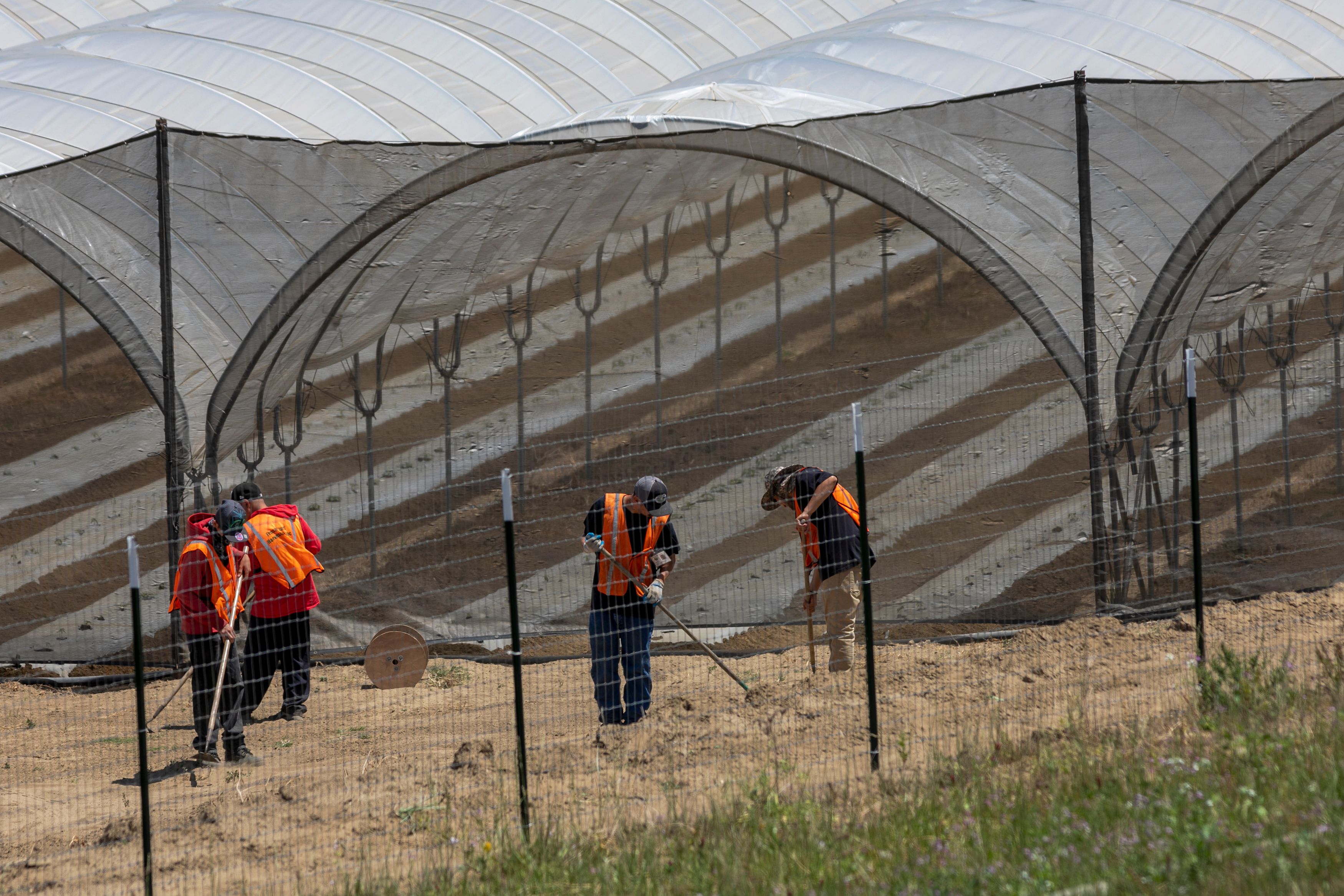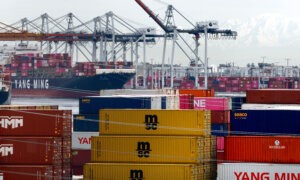Illegal and potentially dangerous pesticides have been found in cannabis grown in and sold out of Siskiyou County, as well as other counties in California, according to Jeremiah LaRue, the county’s sheriff.
Such pesticide-tainted pot has been sold up and down the state and in Oregon, while other states such as Maine and Oklahoma have seen the same problem, he said.
According to LaRue, his department became aware of the dangerous pesticides a couple of years ago, first by seeing Chinese-labeled containers—like foil bags—scattered around various grow sites in the county.
Ultimately, he said, one of the county’s health specialists translated a bag’s labels and discovered it listed various alarming pesticides, some of which are prohibited in the United States.
“And then we started seeing them everywhere,” he told “California Insider” host Siyamak Khorrami during a recent episode.
According to LaRue, the state’s Department of Cannabis Control currently tests for 66 pesticides.
He said tests of 23 samples of cannabis marked with the Chinese labels revealed:
- 15 had pesticides the department does not test for,
- 12 had pesticides that suppress the central nervous system,
- eight had carcinogenic pesticides,
- six had groundwater contaminants,
- five had pesticides banned in the United States, and
- three had pesticides identified as air contaminants, meaning they should not be dispersed in the open.
He said the issue is a concern not only for those working in cannabis grows or greenhouses—many of whom are immigrants—but for recreational and medicinal marijuana users who purchase either from the legal or illegal market.
He said buyers face a “gray market where no one really knows what’s safe anymore.”
“There’s a huge public health issue. ... We have product coming from Siskiyou County that is getting into other communities, into licensed facilities, as well as the black market, that has these pesticides on it,” he said.
He said licensed dispensaries send drivers to the county to purchase large amounts of cannabis, sometimes unaware that the product they are buying has been grown with potentially harmful chemicals.
In one instance, he said, deputies conducted a traffic stop on a truck driver for such a facility from Southern California who was transporting about 4,500 pounds of marijuana. Testing of samples from that haul, he said, revealed eight concerning pesticides.
“If you look [at the company’s website] ... it talks about how their product is safe and how it is of the best quality,” he said. “But in reality the marijuana they are [selling] is contaminated with pesticides.”
After being alerted by the sheriff’s department, the state’s Department of Cannabis Control revoked the license of the dispensary.
But such an after-the-fact reaction is not enough.
He said because more Californians are using cannabis both medicinally and recreationally now since the 2016 passage of Proposition 64, the industry needs more cannabis testing. He added that more scientific research is needed on the effects of consuming a product laden with so many known pesticides, as well those that are off the state’s radar.
“There needs to be a better effort to ensure that people are not smoking carcinogenic marijuana,” he said.
But some dispensaries, he said, fully know they are purchasing illegal cannabis that could be subject to the unknown and potentially harmful pesticides. The reason why is simple, he said.
Many in the industry have chosen the illegal market because regulations, permits, inspections, and fees have made legal cannabis “cost prohibitive,” he said.
“People just want to bypass that the best way they can,” he said. “If they can save money by getting marijuana grown illegally, they’re going to do it because it’s about money. It’s about profits.”
LaRue estimates the cannabis market in the state is about “50-50” right now, legal versus illegal. He said he bases that number on the increasing traffic stops in his county where drivers are hauling thousands of pounds of cannabis.
How much of that may have unknown and potentially dangerous pesticides is unclear, he said.
“Then it is going down into these facilities and being manufactured into something or just sold at a storefront,” he said.
LaRue said his office has not determined why growers are using the dangerous pesticides.
“That’s been a big mystery to us,” he said. “Where is it coming from? Is it being smuggled overseas? Is it being manufactured in the United States?”
He said he does not know of any bills in the California Legislature that would address the issue.
“It’s something we could all get behind,” he said. “It could be a complete bipartisan bill that comes out and deals with this because it’s so bad. I don’t know anybody that would want to smoke contaminated marijuana, let alone a cancer patient.”
He ended the episode with a warning.
“People need to be aware that if they are buying marijuana from anywhere, or getting it from anywhere, there’s a strong likelihood it is contaminated,” he said.
















